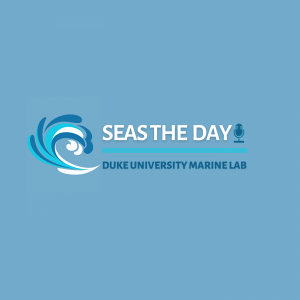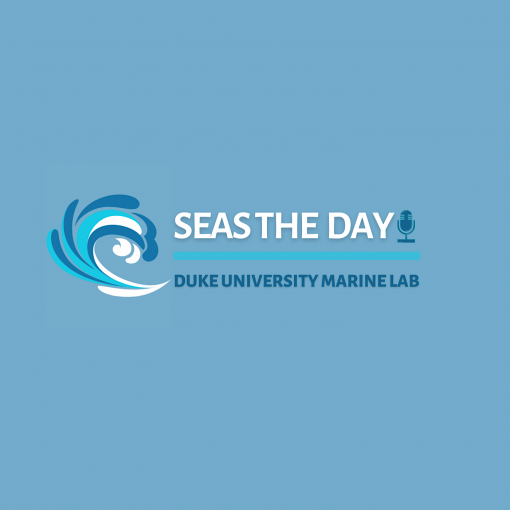In this episode Juan Rebellon, Margaret Morrison, Jordan Scott, and Juliette Lee, students from Dr. Xavier Basurto’s Community-Based Marine Conservation travel course in April 2022, explore cultural changes in the Comcaác Indigenous community and Kino Bay fishing community through the lens of food systems. Listeners will hear community members talk about topics such as their favorite foods, how they fish, and their cultural relationships from interviews conducted during the course in Sonora, Mexico.

Episode Hosts
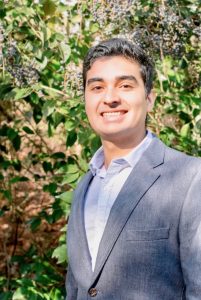
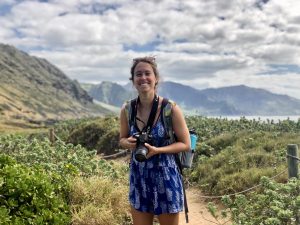

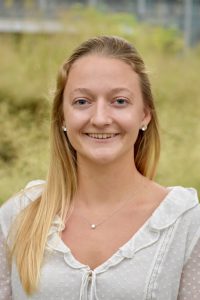
Juan Rebellon is a Master of Environmental Management graduate from Duke University’s Nicholas School of the Environment. Born in Cali, Colombia and raised in Miami, Florida, his main interests are coastal resilience and restoration. He did his Master’s project in the Silliman Lab, focusing on shoreline protection provisioning by artificial oyster reefs. His main hobbies are basketball and fishing.
Margaret Morrison is a Master of Environmental Management graduate from Duke University’s Nicholas School of the Environment. Margaret is from Washington, D.C. and did her Master’s project on sea level rise adaptation strategies in New York City with the Marine Geospatial Ecology Lab. She enjoys scuba diving and surfing.
Jordan Scott completed her undergraduate studies at Duke University studying the cultural and philosophical aspects of marine conservation. Born in Tampa, Florida, her main interests are coral reef and mangrove restoration. She enjoys running, swimming, and reality tv.
Juliette Lee is a Master of Environmental Management graduate from the Nowacek Bioacoustics and Engineering Lab at Duke University’s Nicholas School of the Environment. She is a marine and coastal resource manager working on impact-based environmental challenges. Her interests lie at the intersection of protected species management, ecosystem-based conservation and the “blue” economy. Juliette came to Duke with a breadth of experiences, including tropical marine biology research, experiential teaching and marine policy. Her Master’s Project focused on quieting measures for reducing ocean noise by utilizing “Smart Shipping” technology to conserve acoustically sensitive marine mammals and foster “sound sanctuaries”, and she is the co-founder and president of the Oceans@Duke Student Cabinet. She also completed a certificate in community based environmental conservation.
Episode Interviewees
Erika Barnett is a Comcaác community member who spearheads a mangrove conservation project and is a passionate owner of a large home-grown garden.
Cosme Becerra is the vessel captain at Prescott College Environmental Field Station, a recipient of the National Conservation Prize from the Mexican Federal government, and a co-founder of the chapter of Grupo Tortugero in Kino. Cosme was previously a commercial fisher in Kino Bay.
Cosme Becerra Jr. is the son of Cosme Becerra and a pen shell and octopus diver. He captains a fishing vessel with his younger brother, neighbor, and close friend.
Julio Carrasco is the Head of Maintenance at the Prescott College Environmental Field Station, a role he has occupied since 2004. Originally from Mexico City, he moved to Kino for the warm weather and proximity to the ocean.
Ana Maria Flores is a Comcaác community member who makes crafts in Punta Chueca, Mexico. A mother of two daughters, Belinda and Mayrene, she enjoys cooking for her kids.
Leonel Hoeffer is the Conservation Coordinator and Leader of the Indigenous Community Partnership at the Prescott College Kino Bay Center for Cultural and Ecological Studies. Leonel is Comcaac and originally from Desemboque, Mexico.
Laurie Monti, Ph.D. is a Cultural Ecologist at the Prescott College Kino Bay Center for Cultural and Ecological Studies. Her research and practice focuses on bio-cultural diversity and social and ecological health, with a Ph.D from University of Arizona in Arid Lands Resource Sciences-Ethno Ecology and Medical Anthropology, and an M.S. in Community Health and Pediatrics from St. Louis University.
Gary Nabhan, Ph.D., is an agricultural ecologist, ethnobotanist, Ecumenical Franciscan Brother, and author whose work has focused primarily on the plants and cultures of the desert Southwest. He is considered a pioneer in the local food movement and the heirloom seed saving movement. He has an M.S. in plant sciences (horticulture) and a Ph.D. in the interdisciplinary arid lands resource sciences also at the University of Arizona.
Maximillian Damian Lopez Romero is a Comcaác fisher and diver. He enjoys botany and is looking forward to providing botany tours on Tiburon Island.
Geza Torres is a Comcaác community member from Punta Chueca, Mexico. She is a singer and dancer, as well as a conservation advocate. Geza is the sister of Valentina.
Valentina Torres is a Comcaác community member from Punta Chueca, Mexico. Valentina is a singer and active community member. Valentina is the sister of Geza.
Belinda Molina Villalobos is a 17-year-old high school student in Punta Chueca, Mexico and a member of the Comcaác community. She has aspirations of attending law school in Hermosillo, Mexico.
Mayrene Molina Villalobos is a 15-year-old high school student in Punta Chueca, Mexico and a member of the Comcaác community. She enjoys eating processed foods, like chips after school.
Series Hosts

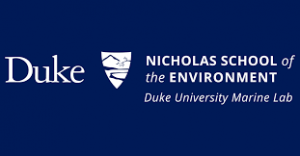
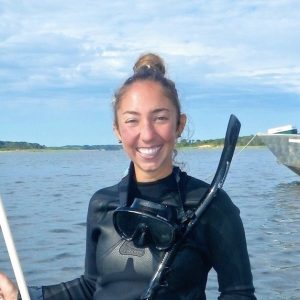
Xavier Basurto, Ph.D., Truman and Nellie Semans/Alex Brown & Sons Associate Professor and Instructor for Community-Based Marine Conservation Course
Xavier is interested in the fundamental question of how groups (human and non-human) can find ways to self-organize, cooperate, and engage in successful collective action for the benefit of the common good. To do this, he strive to understand how the institutions (formal and informal rules and norms) that govern social behavior, interplay with biophysical variables to shape social-ecological systems. What kind of institutions are better able to govern complex-adaptive systems? and how can societies (large and small) develop robust institutions that provide enough flexibility for collective learning and adaptation over the long-term? Trained as a marine biologist, he completed a M.S in natural resources studying small-scale fisheries in the Gulf of California, Mexico, and an MPA and a Ph.D. in Management (with a minor in cultural anthropology) from the University of Arizona.
Dana Grieco, Ph.D. candidate in Dr. David Gill’s Lab and Teaching Assistant for Community-Based Marine Conservation Course.
Dana is a member of the Ocean Synthesis (3S) Marine Lab with advisor David A. Gill. She completed her undergraduate studies in 2016 with a B.S. in biology and a marine ecology thesis from Villanova University. Dana then spent the following three years working in marine ecological research and many facets of the fishing and dive industries in Cape Cod, MA, and the Bay Islands, Honduras. Dana’s current research focuses on how fisheries and conservation interventions impact marine social and ecological systems, with a particular focus on small-scale, data-poor marine systems. Her methodology includes interdisciplinary systems-based approaches and participatory research techniques that value fisheries stakeholder knowledge.
Reference on food systems:
Ericksen, P. J. (2008). Conceptualizing food systems for global environmental change research. Global Environmental Change, 18(1), 234–245. https://doi.org/10.1016/j.gloenvcha.2007.09.002
TRANSCRIPT
Episode: Exploring Cultural Change through Food Systems in Sonora, Mexico
Series hosts: Dr. Xavier Basurto, Dana Grieco
Podcast hosts: Juan Rebellon, Margaret Morrison, Jordan Scott, and Juliette Lee
[Seas the Day intro music]
Host (Dana Grieco): Welcome to Seas the Day. I’m Dana Grieco, and this week, we bring you an episode created by students in Community-Based Marine Conservation in the Gulf of California, a course lead by Dr. Xavier Basurto and co-led by me. This is an experiential education course designed to allow students to learn first-hand about “community” and “conservation” and how both come together in the context of the marine environment. To do this, the class creates the conditions so students can interact directly with individuals engaging with community-based marine conservation from a diversity of perspectives. We choose the Gulf of California in Mexico as an illustration because of its prominence as a region of high conservation interest and because of its history with community-based conservation. We visit with fishers, conservation practitioners, tourism operators, marine protected area managers, indigenous people, and others to understand how they view, practice, and govern conservation. We hope that this podcast takes you with students of our course as they confront their own worldviews with those of the coastal communities we visit and as they consider how different viewpoints challenge the practice of community-based conservation itself.
And a quick note to listeners, this episode opens with a description of Comcaác people cooking and eating sea turtle. While sea turtles are protected in Mexico and their consumption is prohibited, the Comcaác are allowed to harvest sea turtle once a year, in recognition of the importance of sea turtle in Comcaác culture. The consumption described in this episode refers to this traditional, once a year harvest. The consumption described here is legal, while any other consumption is, of course, illegal.
Host (Juan Rebellon): Imagine a seafood dish that is steamed, seasoned with salt, oregano, and lots of lime. It has a rich flavor and a melt in your mouth texture, and is only served once a year during a celebratory feast. The delicious smell wafts into your nose, making your mouth water. You hear the sizzling of the grill just below (sizzling grill sounds). What are you picturing?
What we just described is sea turtle. Sea turtle is a traditional dish eaten by the indigenous Comcaác People in Sonora, Mexico during their New Year’s celebrations every July. The Comcaác are an indigenous group that has lived on the eastern shore of the Gulf of California for perhaps over 10,000 years.
Sea turtle is so culturally important to the Comcaác people that it is many community members’ favorite food. “My favorite food is one that is currently prohibited by the law, and I was actually commenting on this to my coworker today. My favorite food is the marine turtle, in filets and grilled the traditional way. It is a very important food to the culture and I ate it a lot as a kid.”
This is Lionel, a member of the Comcaác community. While grilled sea turtle is his favorite dish, he explains how eating sea turtle has become a delicacy. The Comcaác are only able to eat sea turtle once a year due to efforts to conserve them. This highlights a tension between tradition and modern influences that exists across food, fisheries, conservation, culture, and education.
[Singing from community member Valentina Torres]
In this podcast, we will use food systems to explore changes in the Comcaác community and their neighbors, the Kino community.
Host (Margaret Morrison):
We stayed along the eastern coast of the Gulf of California in the Sonoran desert for a two week course on Community-Based Marine Conservation. In this area, the contrast is stark between the dry desert with its large saguaro cacti and the nearby ocean. This is the region where the Comcaác have lived for perhaps more than 10,000 years, and it is also home to the modern fishing settlement in Kino Bay, which is just south of the Comcaac communities. Before continuing, it is important to note that the Comcaác are also referred to as the Seri, which is a name given to this group by European colonizers. In this episode, we will be referring to the group as the Comcaác, which is how the group refers to themselves in their native language.
Our class was interested in using food systems as a way to explore community-based conservation because food is an important way that we as humans connect to the environment, our culture, and each other. Whether through family dinners or holiday celebrations, the food we eat brings people together. Access to nutritious food also allows us to live healthy and active lives. The food we eat provides a lens through which we can understand each others’ traditions and values.
While the process of getting food on your plate may seem simple, there are many activities that come together to get food from the ground or ocean into your body. This combination of activities is known as a food system. Food systems encompass a chain of processes starting with the production of food, such as farming and fishing. This food gets handled and cleaned, then transported and distributed to markets and grocery stores, where they can be accessed and eaten by consumers.
What these activities actually look like changes drastically depending on where you are. For the four of us, the food systems we depend on largely involve modern large-scale commercial processes, like industrial agriculture. Most of us buy our food at large, brand name grocery stores and our food usually travels long distances to reach our plates. We often don’t even know where our food comes from.
The food systems that the Comcaác and Kino communities rely on look very different. Their food systems are more traditional- supply chains are shorter and production happens at a much smaller scale. The communities also rely on fishing to produce enough food and they almost always know who caught the fish that they are eating.
Changes in food systems can impact food security, which is a major issue around the world. The UN defines food security as “when all people, at all times, have physical and economic access to sufficient, safe and nutritious food to meet their dietary needs and food preferences for an active and healthy life.” To be food secure, you need three conditions to be met: food availability, access to food, and utilization.
[Grocery check-out noises] Now think about your local grocery store– what type of food is available? Are there fresh fruits and vegetables? Can you actually access those fruits and vegetables? Can you get yourself to the grocery store? Are you able to afford them? Do you like eating fresh fruits and vegetables? Is your body able to absorb the nutrients? This is the framework for food systems and food security developed by Polly Ericksen, a senior scientist at the International Livestock Research Institute. We used this framework to guide our understanding of the changes in the food systems in the region.
During our time in Mexico, we interacted with several members of the Comcaác and Kino communities ranging in age from 15 all the way to 75. Through these interactions, we learned about changes in food availability, access, and utilization over time and between generations. These shifts are being driven by changing environmental conditions and cultural integrations between the communities. Through conversations about food, we hoped to gain a better understanding of their culture, their health, and the conservation challenges they are facing.
[Singing from community member Valentina Torres]
Host (Jordan Scott): The Comcaác have a long history of hunting and gathering, which was the primary way of life for many community members as late as the 1970s. Their diet primarily consisted of a variety of wild desert plants, deer meat and fish. The main two Comcaác towns, Punta Chueca and Desemboque, are both located in remote areas in the desert. Far from large cities or towns, these cities lack major food distribution centers. Because of this isolated setting, the shift away from harvesting foods has had a large impact. Gary Nabhan, an ethnobotanist at the University of Arizona, has been working in the region for decades. He studies the shift from this traditional hunter-gatherer diet to one of processed foods.
“I wanted to do something concrete to help save landscapes and seascapes started coming down here exactly 50 years ago and I thought, oh, you know, biological conservation and at first I looked at mangroves here and in the Galapagos. And then after I got started working in Latin America, I realized the knowledge of the people is half of the story, not just the plants or animals. So I took a lot of anthropology and linguistics courses so I could sort of absorb that. But then I started to realize that we were losing knowledge about foods that included the waste to sustainably harvest them that was in indigenous cultures and other traditional cultures, and there were pressure on them to globalize and commodify like there is everyone around the world. And so some of the people who didn’t have contact with their grandfathers and grandmothers were losing those sustainable ways of harvesting. And at the same time, the kind of guys of our generation that was at University of Arizona Natural Resources, we’re losing, we’re losing species faster than we thought we were. Some of it’s from over harvesting, some of it’s from an environmental change and there was debate about that. But one opportunity is that one of the incentives that communities have for being involved in community based conservation is a risk out there or recovery of traditional foods that are part of their identity. And so a lot of our work, Laurie’s work bridges food and medicine, mine is more food and population biology, and to some extent, governance. I’ve been on the National Park Commission Board and a bunch of other things that I don’t need to mention, but I’ve basically been involved in creating protected areas with co-management by indigenous groups.”
This loss of access to traditional plants is being compounded by the increasing availability of processed foods in the local corner store. Leonel, the Comcaac who we mentioned earlier, talks about this switch from traditional foods to processed foods that is happening in his community.
“I didn’t live through it, I only hear what the elders say, which is that previously the consumption base of the community was fish, marine turtle, fruit, roots, leaves from desert plants. But with the arrival in the 30s, 20s, with the development of commercial fisheries in the area, including Kino bay, they brought oil, flour, sugar, all those processed foods, and they started to exchange it for fish. The community would fish and exchange it for food.”
This change has led to a loss of more nutritional access than they have gained. Gary Nabhan talks about how this shift occurring in the Comcaác community is representative of a larger trend happening globally in traditional food systems.
“Keep in mind this is a general pattern that the people who bring us our daily bread to use a biblical reference are the ones most likely to need food banks and food relief all over the world, not just here. So this area where you know selling high protein food, healthiest oils in the world and when they came into the cash economy, what was available? Coffee, sugar and other dried commodities. They didn’t even bring vegetables up so so the fish buyers would come and sort of get them hooked on coffee, sugar. What do we call it? Crisco kind of animal fat for cooking, frying foods. And so literally within 20 years of giving up sort of a Paleolithic hunter gatherer existence to enter the cash economy to be handed cash so that they could consider getting cars or going in to see a doctor if someone was about ready to lose a leg or whatever, they not only became addicted to the cash economy, the average income in this area village is still about only $5000 per nuclear family, but it’s like dollar stores in the United States. What, what do people have access to? So I want to talk about that in in terms of our current studies of assessing their food economy. So at the the start of this three-year project with the two universities in MCO to look, how we can increase food, energy security and water security. We said let’s establish a baseline. Let’s figure out what this area traditionally had, what they have right now. Still influenced by COVID economics and access issues.”
As Gary explains, this change from eating harvested fruits and vegetables to more processed foods is associated with rising rates of diabetes, high blood pressure and other health problems in the Comcaác community.
Laurie Monti, a cultural ecologist, studied the prevalence of diabetes in the Comcaác community in the 1990s.
So I’m Laurie Monti, and I studied health, Pediatrics, public health, my first career and worked in Central America, starting rural health clinics and working with local communities for many, many years. And then, forward segued into a PhD in ethnomusicology and medical anthropology. So that means I got to hang out here a lot during a dissertation. Just went outside and learned indigenous ways of looking at the world, the environment and health that would complement Western science and had a great time and learned lots of songs that come with traditional knowledge and ways of viewing the creatures that provide the food for the community. And at the same time, I was really aware of the crisis of diabetes in the community and the toll that was taking is taking on the whole community of not just plain mortality and losing of limbs of, you know, just the devastation of the disease, but then the toll it takes on a family and the kids and early deaths.
Her study found that about fifty percent of the people in both towns were either pre-diabetic or have diabetes. A recent follow-up from five years ago found no improvements in these rates.
There are several factors driving this shift in diet. For those working on fishing boats or in construction for upwards of 8 hours a day, the issue is access. Leonel explained that the time needed to collect food prohibited this from continuing.
“It was easier because for example the community had entered commercial fishing, and they were slaves to that activity, and they didnt have time to say collect honey, because going to collect honey in the desert for example would take 1 or 2 days. Instead they could fish, which was easier to fish for them, and exchange it for food.”
Processed foods are consumed out of convenience due to the low prices and lack of need for preparation. Many fishers consume processed foods despite knowledge about their health concerns.
In younger generations, the increasing ease of access to these foods has fostered a taste preference for them. Belinda and Mayrene Flores, 17 and 15 year old sisters from Punta Chueca, have noticed their generation eating more processed foods.
Here, the sisters are heard talking about enjoying snacks from the corner store almost daily because they like the taste.
Availability of fresh food is another driver of the shift in diet happening in the Comcaác community. The community relies heavily on fish for income and food, but fish stocks have been declining. This decline is due to factors such as an inability to regulate outsider access to their waters. Furthermore, overexploitation of these waters is driven by the economic need for fishing in the Comcaác community. When speaking with Ana Maria Flores, the mother of Belinda and Mayrene who is in her forties, she mentioned changes in the abundance of fish in her lifetime.
Here, Ana Maria is heard saying that she does not eat a lot of fish because there are not a lot of fish in the water. When asked by our colleague, Juan, about fish abundance changes, Ana Maria is heard saying that there were more fish before, but now there are very little.
We also spoke to Valentina, another Comcaác community member in her late forties, who has noted changes in targeted species during her lifetime.
Valentina said “Before, when I was a little girl, I saw a lot of different products. Snapper, corbina, sierra, shark, manta, but not anymore. They focus on penshell and swimming crabs now”
Many members of the Comcaác community think that this exploitation is being driven by outsiders’ lack of cultural and historical ties to the waters. Max, a Comcaác fisherman and diver, told us about the decline in population of pen shells and swimming crabs he’s seen during his time fishing.
Here, Max can be heard explaining the increase of outsider boats in the channel. Max elaborates saying that the outside boats fail to respect no fishing areas and enter despite having no permission. He points to the presence of these boats as the reason for declining populations.
We heard this sentiment repeated again and again. The Comcaác fishers emphasized that they know how to sustainably fish in the Infernillo channel. They attributed the Kino fisher’s lack of respect to the overfishing of the area. Although we heard this repeated often, it is hard to know if it is actually true. These discussions point to the challenges of governing local fishing commons sustainably. There are also other reasons besides species abundance and availability for why diets shift.
Another shift in diet is happening as a result of generational shifts in what community members prefer to eat. As mentioned earlier, green sea turtle plays a central role in Comcaác cultural celebrations. During the Comcaác New Year at the end of June, sea turtle is allowed to be caught and eaten. Even though there are strong cultural ties to the food, we saw a generational divide in taste preference. Despite praise for the unmatched taste and flavor of sea turtle from the older Comcaác community members, Belinda and Marina can be heard here telling us they do not enjoy the taste and have noticed a divide in preference amongst their generation.
Many aspects may influence their taste preference for turtle and it is hard to pin down exactly why they don’t like it. However, it is difficult to ignore the link between increased community conservation and the decrease in the amount of people who eat sea turtle.
In response to these changes in food availability and access, there are several community-based efforts underway to help promote healthier and traditional foods. One example is the ongoing practice in the community of gifting people fish after a day of work.
“One of the lovely practice where women go to the beach and when the fishermen come in and they help clean the fish and they also get to ask for fish and so it’s a known practice that widows and single women and people that don’t have food and I’ve gone there now and then, can I have a fish? Yes, of course. You can have a fish so that you get gifted with fish if you’re hungry. Even though there is so much poverty and so much ill health, that’s just a really important pillar, I think that there’s still this generosity and care and this native system from way back when.”
Geza, a Comcaác woman, reinforced this tradition and can be heard telling us how she never pays for fish even though she eats it daily.
Gardening efforts are also starting in the community in response to the limited access to fresh fruits and vegetables. We spoke with Erika, a Comcaác community member who lives in Punta Chueca and leader of the gardening trends. In recent years, Erika has begun to practice and promote family gardening.
Here Erika tells us about the process of creating her garden and gaining support from outside organizations. She can also be heard talking about the sharing of gardening knowledge and practice with local families. Erika mentions the initial resistance to community gardening efforts highlighting the drastic lifestyle changes experienced by the Comcaác in the past 50 years.
Host (Juliette Lee): The story of food in the Comcaác Community cannot be told without the context of Old Kino. Old Kino is situated south of the Infernillo Channel in Kino Bay, a 30 minute drive from Punta Chueca. Where the Comcaác are fishers of the Infernillo Channel, the Mexican community members that emigrate to Kino, have free reign of the waters south of Tiburon Island, a protected island once inhabited by the Comcaác people. The Comcaác community see the Kino fishers as outsiders, who dilute their culture. Kino is a thriving Mexican village, bustling with its own culture and food system—a culture that influences the Comcaác community and the foods they eat and have access to.
Within the fishing village of Old Kino, community members are reliant on fish for income and food. Yet availability of fish is limited by current fishing methods, business interests, and overfishing. The small-scale fisheries in Kino target Pen shells– a benthic shellfish. [sound of boat compressor] pen shell fishing requires a diver to spend long hours weighted to the seafloor with a compressor feeding air through a long tube from the surface. Fishers often use makeshift gear, such as beer kegs as emergency air tanks. Yet, even makeshift gear is expensive relative to the fishers’ incomes.
The often restrictive costs of fishing gear reinforces the need for fish buyers in the community. Fish buyers are often community members with access to capital who might have inherited this role from their parents. Fish buyers loan a small fleet of panga vessels geared with nets and diving equipment to fishers. These fishers are then reliant on returning with a profitable catch to pay off their debt.
Cosme Becerra, the vessel captain at Prescott College’s Kino Bay Center for Cultural and Ecological Studies and former fisher, has witnessed how this fiscal pressure forces fishers to overharvest a species. He emphasized how everything that moved in the water was money. The multi-specific nature of this fishery leads to overexploitation of many species, not just pen shells. Yet, Cosme’s perspective of fishing has shifted. He now sees it as an unsustainable practice that needs to be better regulated. Despite this, fishing continues to be a consistent profession for many.
We spoke with Juanito, a fifty-year old Kino-based fisherman who was camping on Tiburon Island with his crew for the night. He was introduced to fishing 15 years ago by his uncle and has been diving for pen shells and octopus ever since. Juanito’s mates include his brother, close friends, and a neighbor. Juanito reminisced about his wife’s cooking and shared that while he enjoys fishing, he dares to dream about wanting to help his wife with her food cart business she runs in Kino in his absence. Unfortunately, he must continue diving for Pen shells, despite the danger and his involvement in several dive accidents, because he relies on the income for his family.
The fish buyer-fisher structure often leads to selling of the catch opposed to keeping for personal consumption. For example, the tender scallop of the Pen shell is sold to higher-income consumers and restaurants in Hermosillo. This becomes less accessible to community members, despite being the preferred part of the animal. Since less desirable fish often gets shared among community members as an important source of food because it is less lucrative.
Fishing is more than a livelihood for Kino fishers— it is embedded in the way they share meals and bond with family and friends. Cosme’s two sons are pen shell and octopus divers and are mates with a neighbor and close friend. After a dive, his twenty-six year old son, Cosme junior, enthusiastically shared how along with a successful day of diving for octopus, they had collected a bucket of pink murex snails. They intended to cook up these snails along with some steak and veggies for his twenty-seventh birthday that week. Cosme discussed with us how his sons often give him some of their catch, such as the less desirable mantle of the Pen shell and shared how he can purchase fin-fish along the beachfront outside his house.
Julio, the Head of Maintenance at the Kino Bay Center for Cultural and Ecological Studies, who has lived in Kino for 14 years, battles with his health. He elaborated on how eating healthy was very doable in Kino.
He says, “Here we eat more seafood, more fish, because if there is a bad time, if there are no jobs, no money, the fishermen always have fish, and they gift them to us, 1 or 2 fish depending on the family.”
This is not a practice solely happening in Old Kino– the Comcaác fishers often participate in this game of trust and reciprocity with the fish buyers too. Access to fresh fish for community members is limited by the amount of seafood left over after the preferred catch is sent to the city of Hermosillo for sale to consumers and restaurants. While Julio finds that eating healthy in the area is easy, he countered that processed foods are more convenient for those strapped for time, similar to what is happening in Punta Chueca and Desemboque. This highlights the dichotomy between the food people are able to access with the foods they would prefer to eat.
Old Kino’s food system influences that of the Comcaác and extends past food to a variety of community aspects. The tug and pull is shown not only in food systems, but also in aspects of conservation, economics, and culture. Valentina, a Comcaác community member, emphasized how the mixing of Mexicans and Comcaác people through marriage, though inevitable, further dilutes their traditions and language.
“It is everyone’s personal decision, but the Comcaác are not in agreement with respect for traditions leading to an exploitation of the Comcaác territory by Kino fishers. Traditions are threaded throughout the entire food system within the Comcaác community.
[Toro singing]
Host (Juan Rebellon): The shifts in food systems are a microcosm of broader cultural change within the Comcaác Community. Increases in processed food consumption mirror the rise of Spanish as the primary language among the youth. Declining appetite for traditional foods parallels the waning popularity of Comcaác music. Even romantic relationships are radically changing, with arranged marriages giving way to love-fueled unions between Mexicans and Comcaác’s. The question then is not whether or not Comcaác customs will continue to change, but at what pace the change will happen.
Outside influence on the Comcaác is partly fueled by increasing access to state resources. On May 14 2022, Mexico’s president, Andres Manual Lopez Obrador, will visit Punta Chueca for the third time during his 6 year term, an astonishing feat for a community of less than 1000 people. The Comcaác are largely welcoming of this new political attention, with 100 new, state-purchased fishing boats set to hit the shores of punta chueca. More resources are likely to follow after the third visit, accelerating the modernization of the village.
Will this further alter taste preferences, drawing more Comcaác to western diets? Or will increasing chronic health issues spark a rebirth of traditional foods? Though we have no firm answers to these questions, we believe that answering them will provide insight into far-reaching cultural change.
[Toro singing]
This podcast was produced by Margaret Morrison, Juan Rebellon, Jordan Scott, and Juliette Lee. Thank you to our Professor Xavier Basurto and our teaching assistant Dana Greico for encouraging us to push the bounds of what a food system is and leading us into the heart of the Comcaác-Kino communities.
[Seas the Day outro music]
Host (Dr. Xavier Basurto): Thanks for listening to Seas the Day. Today’s episode on Food Systems was written and recorded by: Juliette Lee, Margaret Morrison, Juan Rebellon, and Jordan Scott. All were students in Community-Based Marine Conservation in the Gulf of California. Becca Horan edited the podcast. Our theme music is by Joe Morton and our artwork is by Stephanie Hillsgrove. Follow us on Instagram and twitter at Seas the Day Pod and don’t forget to rate us on Apple Podcasts, or wherever you listen.
END OF TRANSCRIPT

